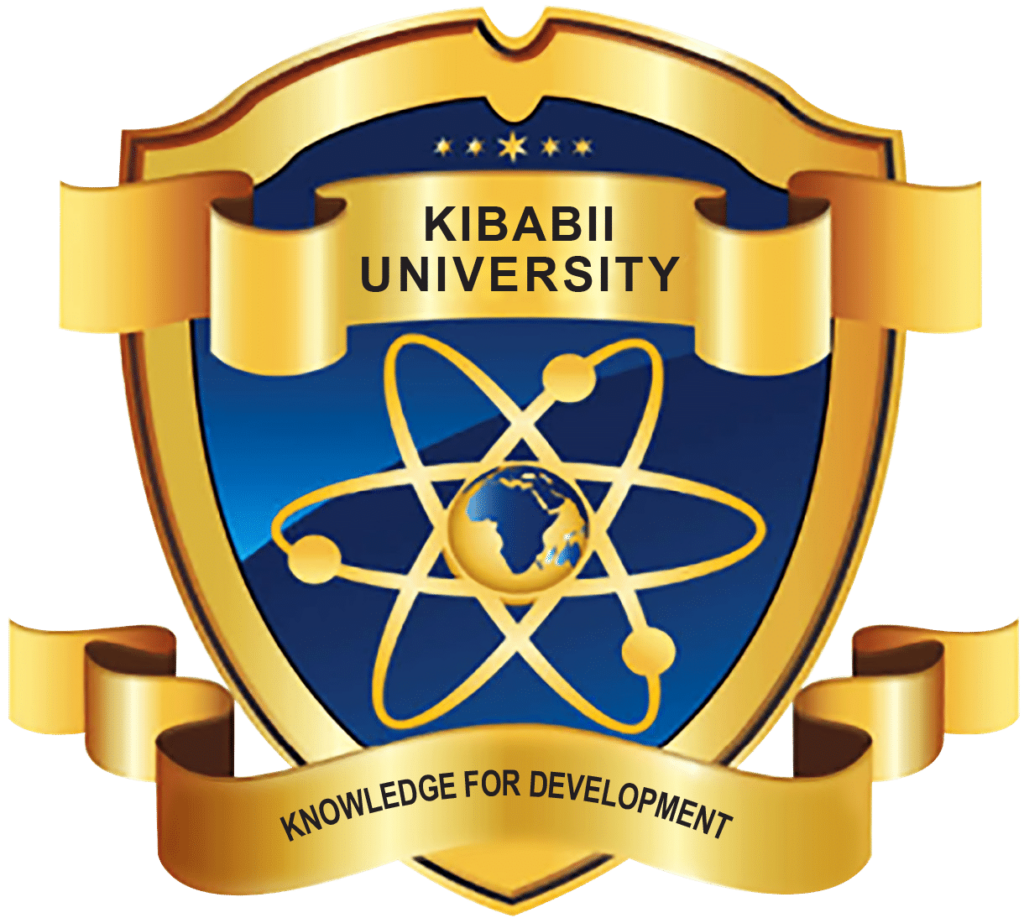On Thursday, 31st July 2025, Kibabii University held a workshop to present findings from a research project titled “Use of Smart Technology to Predict Climate Change Effects on Terrestrial Plants Diversity and Conservation for Sustainable Livelihood in the North Rift Region.” The workshop was officially opened by the Deputy Vice Chancellor (Planning, Research and Innovation), Prof. Julius Maiyo who represented the Vice Chancellor. The presentation was led by the Principal Investigator, Prof. John Makokha, alongside other project team members; Dr. Martha Muthoni Konje (Co-Principal Investigator), Dr. Anselemo Peters Ikoha, Dr. Jonathan Mutonyi, Dr. Alice Nambiro, Dr. Nelly Masayi, Mr. Victor Okello, Mr. Collins Majengo, and Mr. Peter Barasa. Two postgraduate students, Eric Sifuna (PhD) and Eve Wamasebu (Masters), were also part of the team under project sponsorship.
The study, a result of a partnership between RUFORUM RAINCA and Kibabii University, was funded through a competitive grant and was conducted over a one-year period from April 2023 to May 2024. It focused on eight counties in Kenya’s North Rift region; Turkana, Trans-Nzoia, West Pokot, Uasin Gishu, Nandi, Baringo, Elgeyo Marakwet, and Samburu. The main aim was to explore how smart technology can be used to predict the impact of climate change on terrestrial plant diversity and to support conservation for sustainable livelihoods. The study also sought to understand the communities’ awareness of climate change and how they are experiencing its effects.
Findings showed that the communities involved had a good understanding of climate change, including its causes and consequences. Radio emerged as the most common source of information on climate change, followed by indigenous knowledge systems, indicating the continuing relevance of traditional knowledge in local environmental awareness. Deforestation was widely mentioned as a major cause of climate change, with many participants also citing shifting weather patterns. The effects most commonly reported included reduced rainfall, increased temperatures, prolonged droughts, and more frequent destructive winds. These changes have led to decreased food production and scarcity of animal feeds across the region.
Many participants believed that afforestation is an effective way to mitigate climate change. They acknowledged the joint efforts of local communities and the government in planting trees, while also recognizing the national government’s role in creating awareness and educating the public on climate-related issues.
One of the key outputs of the project was the development of the North Rift Weather Prediction System (NRWPS), an environmental monitoring tool that uses advanced technology to support climate adaptation. The system includes two main components: the Normalized Difference Vegetation Index (NDVI), which tracks vegetation health, and the Bare Soil Index (BSI), which measures soil exposure. These indicators are analyzed using a machine learning method known as XGBoost to provide accurate predictions. This integration enhances the ability to monitor environmental conditions and supports better decisions in agriculture, land management, and soil conservation.
The study concluded that combining weather forecasting with NDVI and BSI predictions provides a powerful tool for sustainable agriculture and environmental management. The high accuracy of the models makes the NRWPS reliable for guiding crop planning, irrigation strategies, and efforts to prevent land degradation. The system has the potential to significantly improve food security and climate resilience in the North Rift region. With continued development and community involvement, it can be expanded to benefit other regions as well. The project marks a major step toward precision agriculture and offers a practical response to the challenges posed by climate change.
For more details on this project click here https://kibu.ac.ke/research-findings-for-the-ruforum-rainca-project-in-north-rift-region-kenya/

